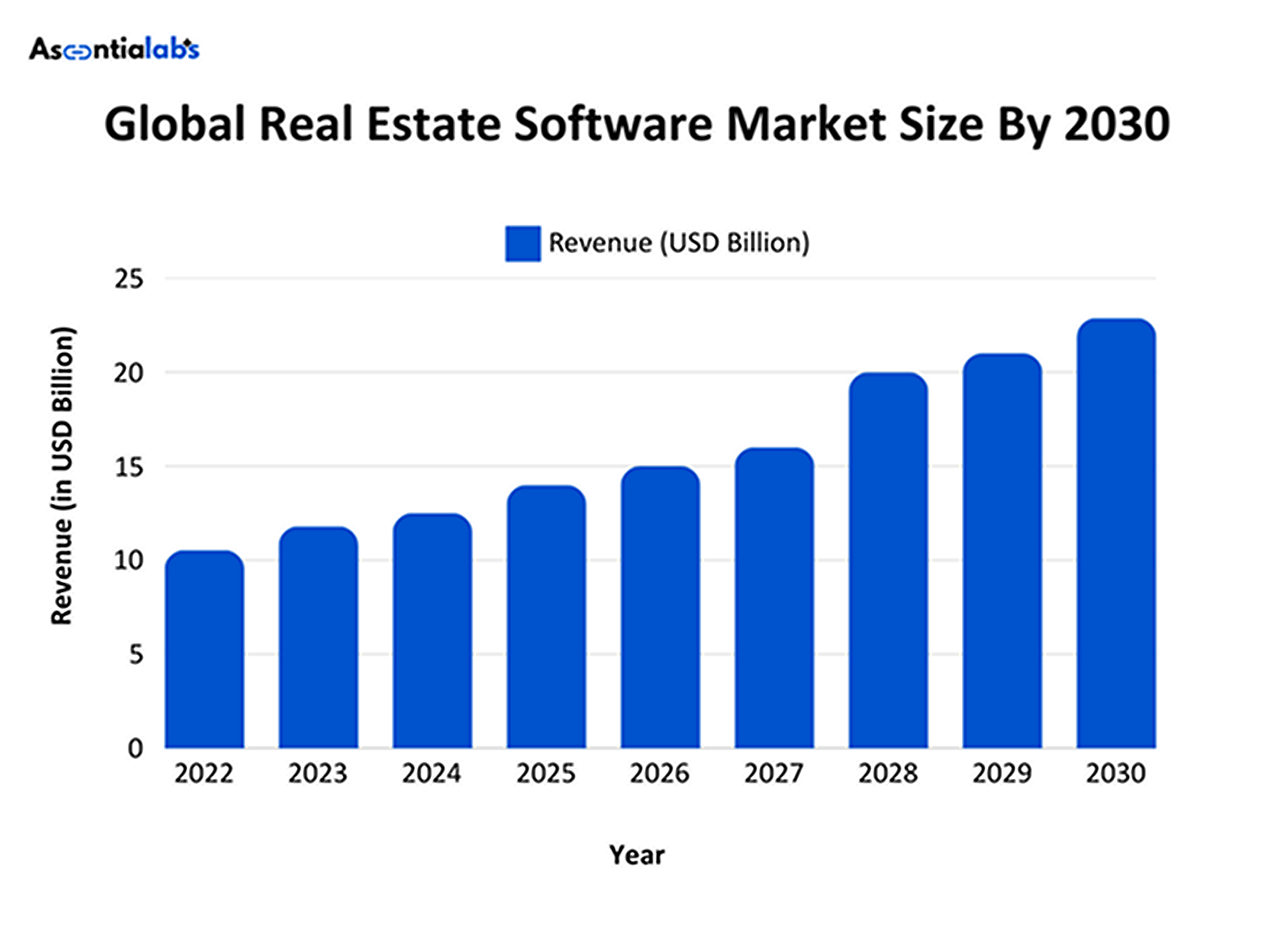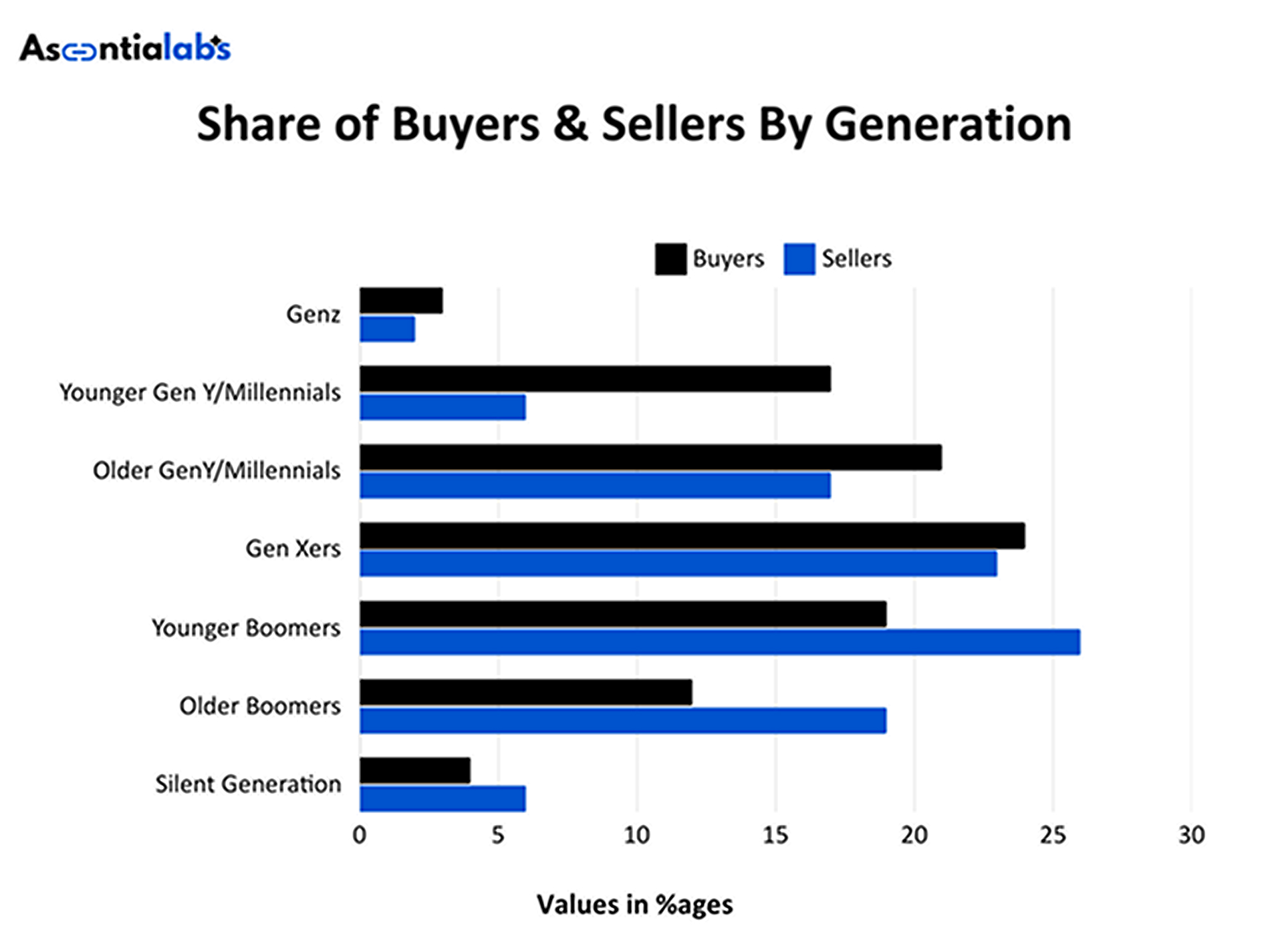Introduction
Just imagine how you will feel when you know you can find
your dream home with just a few taps on your smartphone.
Gone are the days when any individual physically went and
viewed the properties with endless paperwork. In today's
digital world, homebuyers and real estate agents are turning
to innovative real estate apps that are transforming the
real estate industry as we once knew it.
In this blog, we'll read about the technological advancement
in
real estate app development
and the significant changes it brings along with it. We will
look into the history of these apps, current market needs,
and the primary technologies that are enhancing the overall
user experience in this industry. Further we will discuss
the benefits of the real estate apps on real estate agents,
buyers, and sellers. So why wait? Let's get into the action
right away.
The Rise of Real Estate App Development
A. Increased accessibility for buyers and sellers
The development of real estate applications has completely changed how buyers and sellers engage with the real estate industry. These apps can benefit the buyers and sellers in a variety of ways like, allowing users to browse property listings, schedule meetings and communicate with real estate agents at their convenience.

B. Streamlined property search processes
Real Estate property buyers now have a more effective and a user friendly way to view the properties. With advanced search filters buyers can narrow down their property options based on specific criteria such as:
- Price range
- Location
- Property Type
- Nearby Amenities
These features enable property buyers to find their ideal properties quickly, saving time and reducing the frustration often associated with traditional property searches.
C. Improved communication between agents and clients
Real estate apps have made it easier for agents and clients the way they communicate with each other. With features like messaging, video calls, and sharing documents, these apps have made the entire communication process smooth and quick. This helps all the stakeholders involved in the real estate industry to make informed decisions faster and makes buying or selling properties a lot easier.
The Scope of On-Demand in Real Estate
The gig economy has an influence on the real estate industry by offering quick access to services and making old processes smoother. Main areas include:
- Instant Property Search: Smart filters and virtual tours allow buyers to find and check out homes instantly.
- Real-Time Booking: Buyers can book or schedule a meeting with the real estate agent in order to set up house visits without waiting.
- Expert Help: Buyers can quickly communicate with the real estate agents, and loan experts.
- Digital Transactions: Users can pay for the property through online banking, credit/debit cards or bank transfers.

Impact of On Demand in Real Estate
- 85% of buyers prefer real estate platforms offering instant property search and virtual tours.
- 70% reduction in time spent scheduling property visits due to in app real-time appointment booking.
- 60% faster transactions with digital paperwork and online payment integration.
- 40% increase in customer satisfaction attributed to personalized notifications and immediate expert access.
- 50% growth in operational efficiency for real estate agents using on-demand workflows.
- 30% rise in post-purchase engagement through on-demand maintenance and management services.
Tap into the $19 billion real estate tech market, projected to grow at a 10.12% CAGR, transforming countless real estate businesses worldwide!
Get In Touch
Enhanced User Experience in Real Estate Apps
A. Personalized Property Recommendations
Real estate apps are using advanced technology algorithms and machine learning to give users the property suggestions that fit according to their unique demands and needs. These suggestions are made by looking at different things like:
- User's search history
- Property preferences
- Budget constraints
- Location preferences

B. Real-Time Market Data And Insights
Today's real estate apps give users the latest market information and helpful tips, helping them make better decisions. This includes:
- Current home prices
- How prices are changing
- Information about local areas
- Predictions about the market
C. Seamless integration with financial services
To streamline the property buying process, many real estate apps now integrate seamlessly with various financial services. This integration offers users:
- Mortgage calculators
- Instant pre-approval processes
- Direct connections to lenders
- Budget planning tools
Now, since we have seen how real estate apps can enhance the overall user experience by providing them with personalized property recommendations, real-time property market data, and seamless transaction services. We now look forward to the benefits of real estate apps on the real estate property agents or professionals.
Benefits for Real Estate Professionals
.jpg)
Future Trends in Real Estate App Development
A. Voice-activated property searches
Voice-activated property searches are set to revolutionize the real estate app experience. As natural language processing advances, consumers will be able to simply verbalize their needs, making property hunting more simple and accessible for them.

B. Integration with smart home technologies
The combination of real estate apps and smart home technologies is creating a more seamless experience for the real estate home buyers. This integration enables buyers to engage with properties remotely which help them to visualize their future living spaces.

Conclusion
Technology has changed the real estate industry, with mobile
applications leading the charge. These apps offer virtual
property tours and AI-based suggestions changing how buyers,
sellers, and real estate agents work and talk with their
clients. The better user experience coupled with many key
benefits for all the stakeholders involved in the real
estate industry have made real estate apps a must-have in
today's property market.
Looking ahead to the new technology like blockchain,
augmented reality, and big data analysis will bring more
exciting changes in the
real estate apps . Using these new technologies will make property deals
faster, clearer, and easier to access. If you work in real
estate or you're looking for property, it's key to keep
yourself updated with these tech changes to understand the
changing real estate market.

 Arham Jain
Arham Jain
.png) 17/01/2025
17/01/2025
 5 Mins
5 Mins
.png)

